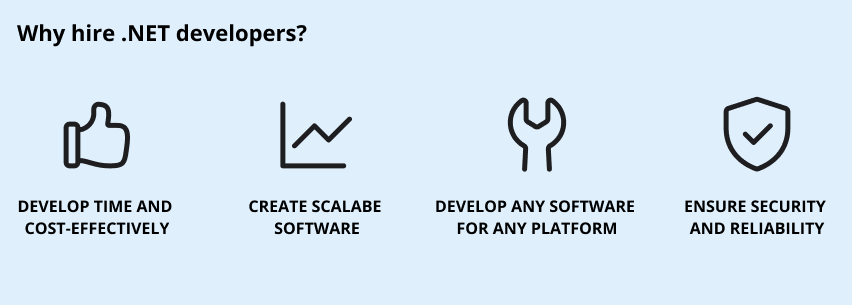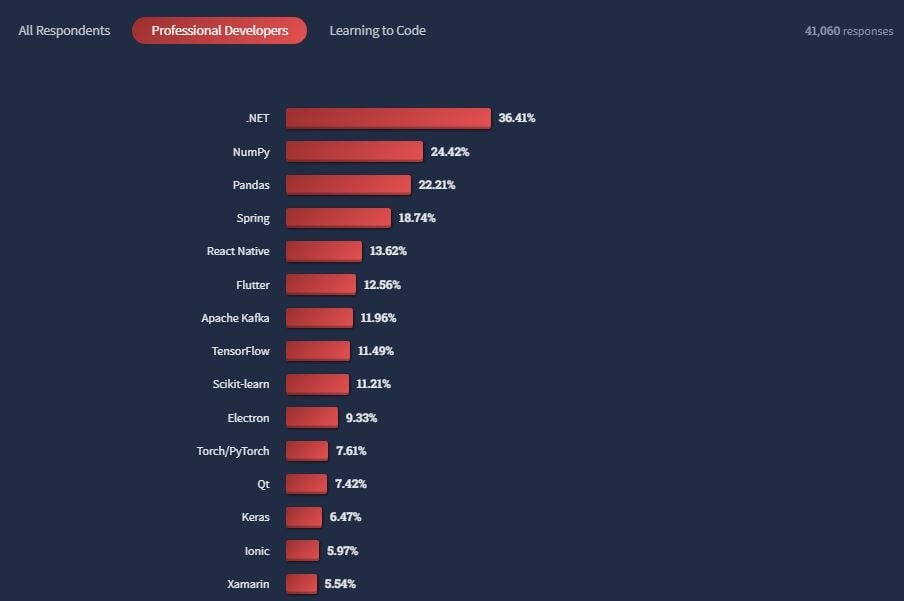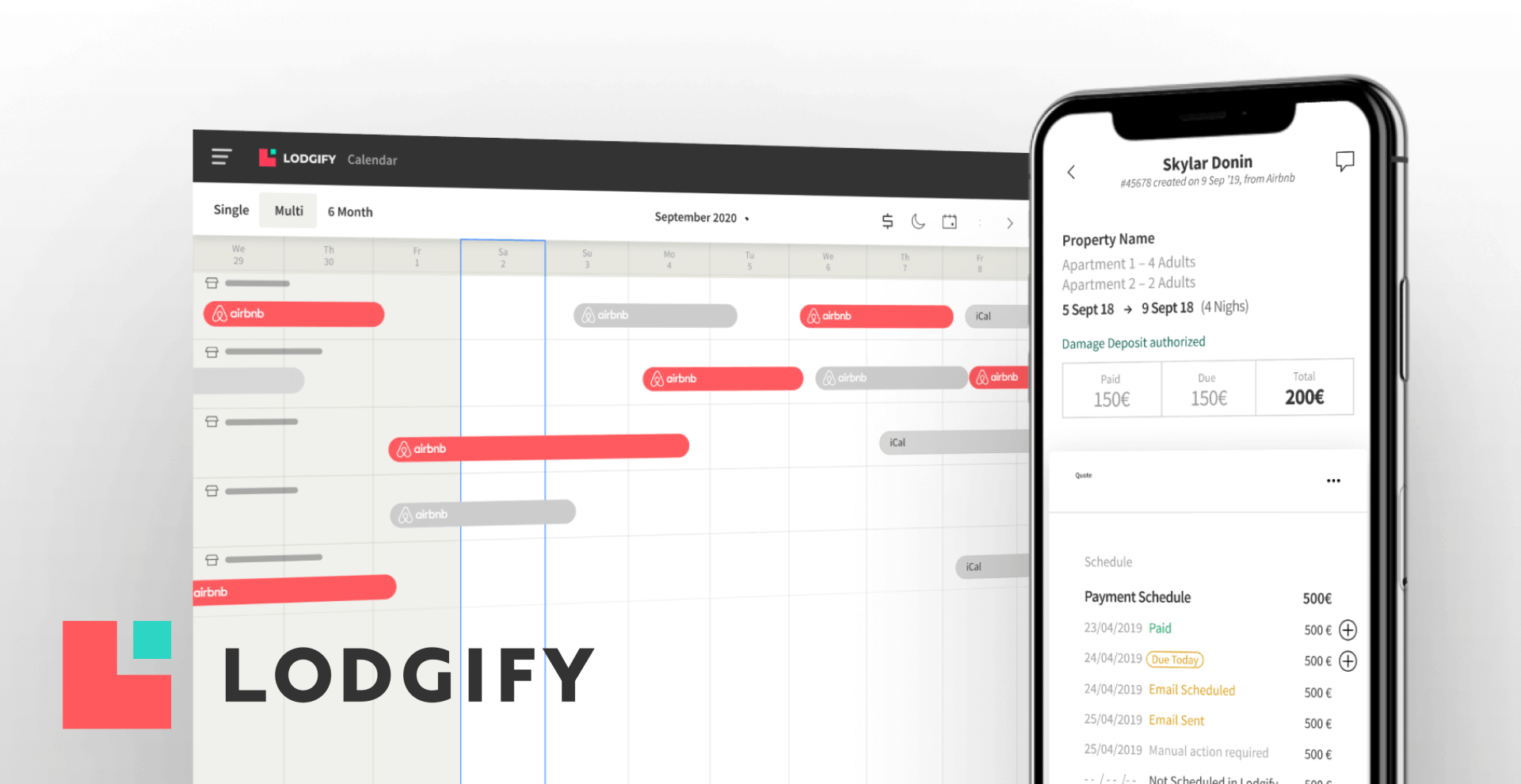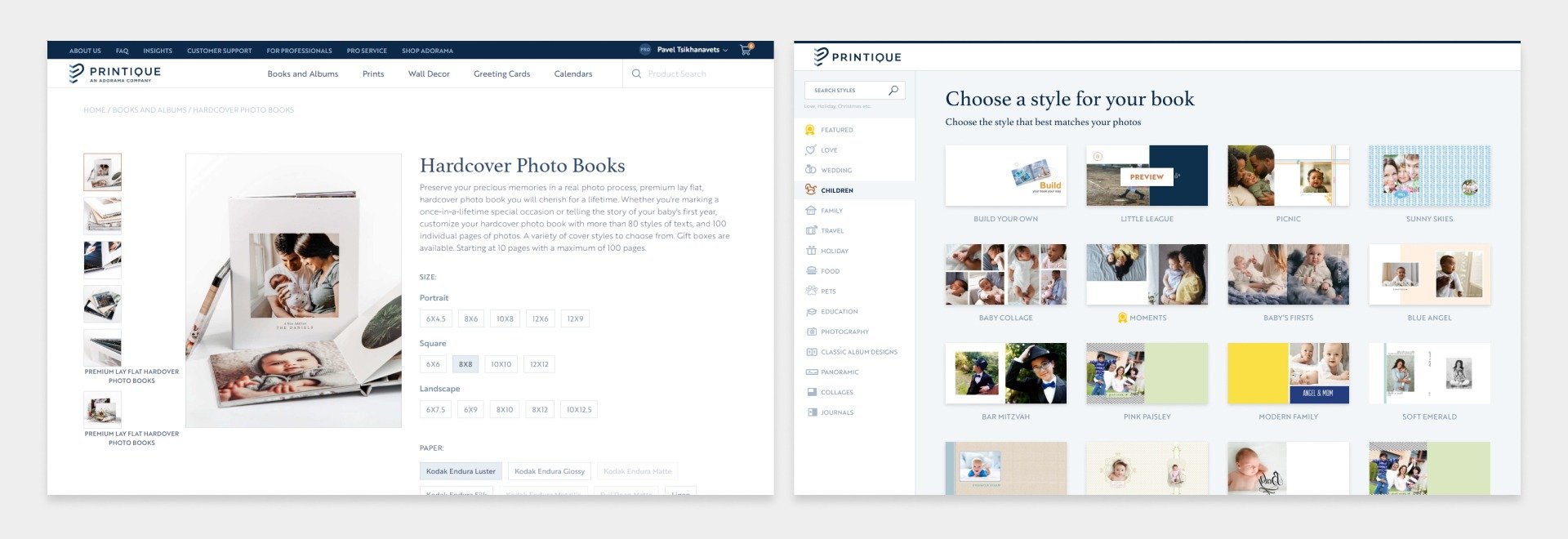Your Go-To Guide to Finding and Hiring .NET Developers
Hiring .NET developers in today’s talent market is a real pain. Even though the most optimistic estimate suggests that there are over 8 million specialists in the world and counting, this appears to be not enough to cover the growing need. Especially when it comes to senior engineers with years of experience or rare domain expertise.
So if you need to find .NET developers right now, you’ve got your work cut out.
And the problem is threefold.
- First of all, there are simply not enough qualified specialists to meet an ever-growing demand.
- Secondly, it’s easy to lose a perfectly good candidate to battle for talent, for example, due to a slower hiring process or complex requirements.
- And of course, hiring and retaining top-tier talent is getting more and more expensive.
We get it. .NET is our core expertise, and as a tech company, we are constantly on the lookout for experienced engineers for our current and new projects. But never have we seen, in the last decade, such fierce competition in this market.
Fortunately, we have a tried-and-true strategy to find, hire and, importantly, retain, outstanding engineers for software projects. And we are going to share it with you.
But before we lay it out, let’s go through a few basic points to better understand why, where, and how to hire .NET developers without draining your budget or wasting months on recruiting process.

.NET refers to an open source .NET developer platform built and supported by Microsoft and thousands of engineers across the world. It includes massive resources, programming languages, developer tools, and a limitless number of libraries and components that help engineers build software for virtually anything – web, mobile, cloud, etc. – fast and effectively.
So when we talk about .NET developers, we refer to a large category of specialists who use the components, tools, and practices of .NET to create different types of software from enterprise applications to IoT platforms to mobile games.
Versatility is only one of many advantages of .NET that make it a go-to choice for software development, and therefore the reason why .NET engineers are in high demand. And why it’s such a challenge to hire .NET developers team. Other benefits include:
Cost-effective software development
.NET technology is incredibly resourceful. It provides engineers with everything they need to build software effectively – from reusable components for every feature or task to the development environment and tools for fast coding, debugging, and deployment. This results in better productivity for engineers and reduced development time and costs for you.
Huge scalability and growth potential
In our experience, if you are building anything bigger than a PoC, you have at least some scalability requirements. Perhaps, scaling your product is exactly why you are looking for .NET professionals in the first place.
.NET is a good choice for building scalable applications that will grow as your business evolves. Whether you plan to leverage microservices architecture, build a cloud-native application or use other approaches to design resilient and scalable apps, your .NET team will have the right programmer tools at hand.
Guaranteed security and reliability
Another reason for choosing .NET developers is high security requirements of your project. Along with the fact that the entire .NET ecosystem is supported by Microsoft, it is also a mature platform with tried and tested frameworks, libraries, and security components. So onboarding experienced and skilled .NET engineers, you also guarantee the reliability of your system.
You may even want to find and hire .NET developers that have certain Microsoft certifications to address specific requirements of your project.
These are by far not the only reasons why .NET is consistently the number one choice for business. AND developers. Check the results of Stack Overflow where more than 40k engineers from around the world confirm that .NET frameworks and libraries are their best-loved and widely used in 2022.

Q: Which other frameworks and libraries have you done extensive development work in over the past year, and which do you want to work in over the next year? Image credit: Stack Overflow
We have already mentioned that .NET developer is a very generic term. Because .NET is a large ecosystem with different technologies for every type of software from web applications to IoT and AI. .NET Core, ASP.NET, .NET 6/7, and Unity are all implementations and platforms of .NET.
There are, however, several key tasks that nearly every .NET engineer with any skillset does on a daily basis:
- Designs and develops software using .NET platform and tools.
- Monitors and ensures performance, reliability, and scalability of the application.
- Maintains high standards of code quality and resilient design.
- Develops and supports existing integrations and APIs.
- Supports testing, performs debugging and troubleshooting.
- Works closely with front end team to develop and support client applications.
Depending on your tech stack, project requirements, team composition, and overall goals and business needs, you will look for different skills and qualifications when hiring .NET developers. So before we move to the top places for finding perfect .NET developers for your project, check these baseline requirements for your candidates. This will help you understand which boxes to tick when screening engineers for the job.
Go through these essential skills to put together the job description and a list of requirements for your candidates:
- Solid experience with C# – one of the key native programming languages for .NET.
- Practical experience in using Microsoft Visual Studio, the development environment where engineers build, edit, and debug code.
- Complete understanding of object oriented programming concepts and how to use them to write clean, readable, testable code.
- Knowledge of key .NET implementations and tools including the fundamental .NET framework if you are hiring .NET framework developers, or later implementations such as .NET Core, ASP.NET Core, .NET 6/7, etc.
- Knowledge of SQL databases, in particular Microsoft SQL Server.
- Good understanding of C# and .NET coding guidelines and best practices.
- Knowledge of modern front end frameworks and languages (HTML, CSS, React.js, Angular, etc.)
- Comfortable working in the Agile environment and applying modern engineering practices, e.g. DevOps, CI/CD, code review, unit testing, etc.
- Excellent communication skills and ability to spot and communicate issues and suggest solutions. It is one of the most important soft skills you need to look for. Software development is teamwork after all.
Now that we went through the fundamental skills to put at the top of your list, let’s go straight to the practical instruction on where and how to find and hire .NET developers.
Looking for .NET engineers?
We offer the fastest way to staff your software project, without exceeding your budget
.NET DEVELOPMENT SERVICES
If you are looking for qualified specialists to join your in-house team and work on-site, consider checking popular .NET communities and job platforms.
.NET communities
.NET communities exist mainly for engineers to chat, share experiences and solve common problems together. Such communities are also a good space to find .NET developers with the required tech and industry expertise.
Some of the most popular communities are GitHub, DevBlogs run by Microsoft, and a .NET fan for life, Stack Overflow.
NOTE: You don’t want to be intrusive and pitch your offer right there annoying engineers and everyone else. Instead, you can try and find specialists that possess the right skills and have the experience you need, and then approach them in a more appropriate space, for example, on LinkedIn.
Job platforms
LinkedIn and various IT-focused job boards and platforms are perfect to find open-to-work specialists and reach out to them right away. First of all, you can already get an idea about the specialists’ experience, skills, certifications, and goals by checking their profiles. Secondly, you get a bigger chance to match with engineers who are actually willing to change jobs. Often, engineers register on job portals exactly for this reason – they may be looking for a dream job, want to work in a specific industry, consider relocation, etc.
But what if you don’t have days and weeks to roam through communities or job boards? Or can’t find relevant talent in your location? Or within your budget? In that case, you can delegate the search to a tech company that has relevant experience and knows how to find expert .NET developers fast.
Tech companies that specialize in .NET
Working with a trusted tech vendor is one of the most time and cost-efficient ways for adding remote specialists to your team or hiring .NET developers team as a dedicated resource. Here’s why:
- Fast recruitment. Tech companies that specialize in .NET either already have available engineers with relevant skills on board or can access top-tier talent by tapping into their time-tested resources and database. Depending on your requirements, a tech vendor may provide you with CVs in a matter of days, and hire .NET engineers for your project in a matter of weeks.
- No administrative hassle. If you grow your team with a tech vendor, you won’t have to bother with administrative expenses and processes (recruitment, employment, payroll, workspace, productivity tools, employee perks, retention activities, etc.). Remote specialists will work as your in-house employees but will be employed by your tech vendor who takes over all the recruitment, employment, and infrastructure responsibilities.
- Smooth integration and effective team management. Your tech partner will help you integrate remote specialists and make sure they become a part of your team. Plus, you can engage an Agile Project Manager or a Scrum Master to help you manage the project and guarantee high performance.
- Quick ramp up and ramp down. Increase or cut your engineering team, add cross-functional specialists (e.g. design, business analysis, DevOps), or completely change team composition as your project evolves. When you work with a tech partner, you get the flexibility of freelance with the quality of work equal to or exceeding in-house employment.
- Extra services. One of the most important pros of working with an experienced tech company is the ability to leverage your vendor’s tech and business expertise. Along with adding valued specialists to your team, you also get access to years of cumulative experience in .NET and other technologies, different domains and software product design and development.
- Reduced development costs. Partnering with a nearshore or offshore tech provider can help you reduce development costs thanks to differences in rates/salary expectations.
Let’s stop right here and talk a bit more about how much it may cost you to hire a .NET developer and also figure out how much you could save by hiring .NET developers with a nearshore or offshore vendor.
Your hiring cost will depend on many factors, but the most significant ones are WHO you are going to hire and WHERE.
The difference between hiring a senior .NET engineer and a junior is astounding. Compare, for instance, the yearly wages of an entry-level (1-3 years of experience) developer and a seasoned engineer (8+ years of experience) in the US (source Salary Expert, 2023):
- Junior — 68,000 EURO ($74,000)
- Middle — 96,000 EURO ($105,000)
- Senior — 120,000 EURO ($131,000)
You will find a similar gap in Europe. For example, the average yearly salary of a .NET developer in Germany is around 83,000 EURO, compared to 104,000 EURO for senior engineers. In the Netherlands, the average salary rate for this mid-level position reaches 78,000 EURO. In Norway, this number goes up to 85,000 EURO (935,000 NOK).
Clearly, the higher the level of experience you seek, the more it will cost you. But this is where it gets interesting. If you choose to outsource to a nearshore or offshore provider, you can find senior .NET developers at a cost of a middle or even junior engineer in your location. Check this out:
If you are located in Western Europe, outsourcing to a popular nearshore destination, e.g., Poland, could help you cut your costs up to 50%. On average, a .NET developer makes around 37,000 EURO (173,000 PLN) per year in Poland. A senior engineer makes about 46,000 EURO (215,000 PLN) — about twice less than what you would pay if you were hiring in Germany.
Offshore vendors provide even higher savings, however, often require workflow adjustment due time zone and cultural differences. A .NET specialist in the Philippines, a popular offshore destination, earns around 15,000 EURO (890,000 PHP) yearly, on average. In Indonesia, hiring a middle .NET developer would cost you around 27,000 EURO (438,000,000 IDR). In Malaysia — around 29,000 EURO (135,000 MYR).
Scale up your .NET team
Find the best .NET developers for the job without burning money on long recruiting
HIRE .NET ENGINEERSCut time to hire
It’s getting harder and harder to stay competitive in the IT job market. Despite the recent waves of layoffs in tech, the world is still struggling with a growing shortage of skilled and qualified specialists. To win this battle, you need to make sure your hiring and decision-making process is as effective and fast as possible.
Avoid failed expectations
Stay honest throughout the entire recruiting process from the moment you put together a job description to the moment you make an offer to your best candidate. It’s essential to make sure your candidates understand what they will be working with, what you expect from the role, and what perspectives they have in the company.
Don’t hide important details that will affect their work, such as legacy code, for instance, especially late in the interviewing process. Otherwise, you risk ending up with failed expectations on both ends. This is one of the most important tips for hiring .NET developers for the long term.
Take soft skill check seriously
Soft skill match is no less important than checking tech proficiency and experience. Unfortunately, it’s often overlooked and treated as an afterthought. As a result, it may lead to a lack of team synergy and serious communication issues.

We have talked about the main skills and tasks for a .NET position, named a few strategies for sourcing qualified candidates, and given a few tips on how to choose and hire .NET developers. In the next part, we finally give you our step-by-step plan for finding .NET developers without spending months no recruiting and inflating hiring costs.
This plan is based on our decade-long experience in hiring senior and middle .NET engineers. This time-proven process and best practices help us staff projects for such clients as Oxford Languages, Printique, Diaceutics, Oracle, Lodgify, and many more.
Step 1. Clarify requirements
The effective hiring process starts with a complete understanding of project goals, technical requirements, expectations, and long-term objectives. Without clarifying all the details, you won’t be able to understand what skills and experience to look for, how to choose .NET developers and assess their competence, and what to offer to attract them to the role.
This is why, for example, when we start hiring engineers for our clients, we set up a team of senior tech specialists (including CTO) and conduct a Q&A with the stakeholders to develop a very detailed image of the role. We need to learn about the depth of experience required for the project. What specific hard skills candidates absolutely must have to ace the role. And what soft skills to look for.
Step 2. Prequalify candidates
Background checks and interviews take an immense amount of time that senior tech specialists usually don’t have. Prequalification is a useful solution that helps hire .NET developers with the necessary skills faster. By assessing candidates against the key requirements set in the first step, you will be able to select only the top most relevant candidates for the interviews.
We usually start this stage by working through our rich database of tech specialists. This allows us to prequalify candidates quickly and have the list of first valid candidates ready within only 1-2 weeks from the moment the requirements are clarified.
Step 3. Conduct interviews
Interview and background check activities vary depending on the project, in-house recruiting process, and even on the complexity of the role. We generally stick to two in-house interviews to pick top candidates and then set final interviews with the client.
First, we start with a profound background check and interview with tech talent specialists to assess soft skills and all the qualities needed to successfully integrate into the team. Secondly, we conduct a tech interview with senior specialists (CTO, tech lead, and/or lead engineer) and management. At this step, we validate if candidates’ skills and qualifications match the client’s requirements and shortlist only the best for the role. Then, top candidates usually have another interview with the client.
Step. 4 Select among top candidates
By this step, you already have a list of candidates who made the cut and can evaluate who would be the best choice for the role. In our experience, it’s essential to act fast at this point. Otherwise, you risk losing a perfect candidate to another company.
To help our clients mitigate this risk and make informed decisions faster, we:
- Provide a detailed assessment for each candidate after two rounds of in-house interviews, explaining why we believe a candidate is a good fit for the role.
- Suggest that clients make a final decision within 5 business days after the final interview.
- Provide official job offers to selected candidates immediately after the client makes a decision.
Step 5. Hire and integrate new team members
Congratulations! Your perfect candidate accepts the offer and is now officially a part of your team. Now comes the onboarding – an important step that will lay the foundation for successful work. In fact, it’s believed that a solid onboarding process is one of the factors that help increase employee retention. Which is kind of a big deal in today’s talent market.
We suggest creating an environment for smooth integration into the team and setting out effective communication practices from day one. This helps newcomers avoid frustration and generally survive the first three months without stress. Other practices include:
- Training, onboarding buddy programs, team introduction, project workshop
- HR introduction to the company’s culture, history, process, ethics, perks, etc.
- Welcome activities, welcome packages
- Onboarding survey, reviews
That’s all for the guide to finding and hiring .NET developers, but not all the nuggets we wanted to share with you. Check a few real-world cases below to see how we use this plan in action and staff enterprise-level projects within 1-2 months.
As a tech company with over 14 years in .NET software development, we leverage a time-tested process to hire engineers for projects of any scale, from large SaaS platforms to MVP development. Here are two client success stories that demonstrate how to hire .NET developers team without inflating recruitment costs and timeline.
Team augmentation for a Barcelona-based travel tech company

The client is a rapidly-growing travel tech company from Spain. They develop and support a large vacation rental management platform and work with remote engineers across Europe to grow their system.
The company approached Digiteum in 2020 to find and hire .NET developers to augment their agile team and speed up project development. The client had extremely high requirements and had trouble finding developers with relevant tech skills who could fit with the team. We qualified the first new hire in 2020 and since then augmented the client’s team with 6 more senior engineers. Our engineers are fully integrated into the client’s process, develop and support new functionality and work full time on scaling the client’s microservices-based platform to this day. Read the full case study…
Offshore dedicated team for a leading US printing company

Digiteum is an official tech partner of a leading US printing service provider since 2010. The client had an idea to put together a dedicated offshore web development team to design, develop and support a large web system that provides pro and amateur photographers with a wide range of photo printing services (photo books, calendars, wall prints, canvas, etc.).
We started with 4 engineers and soon expanded the team to 20 dedicated specialists, including 10+ full stack .NET engineers, QA, UX/UI designers, and Project Managers. The team continuously supports and scales the client’s web applications and entire digital infrastructure for over 14 years, ensuring a superior online experience and competitive edge. Read the full case study…
“The technological agility that the team provides is our biggest market strength. The project management, design, and development that they provide is second to none.” David Nicoletti, former CMO & Product Owner at Printique.
Find and hire top-tier .NET engineers
Need help with getting your project delivered on time without exceeding your budget?
CONTACT DIGITEUMShort wrap-up
There you have it. We talked about where and how to find .NET developers for your software project and laid out a simple 5-step plan that will help you hire engineers without risks of losing prospective candidates or increasing costs. Tweak the plan as you see fit to adjust it to your process.
If, however, you feel that you need help with hiring .NET developers or setting up a dedicated team for your project, contact our specialists and request a consultation.
This post was originally published on June 14, 2022 and updated on February 2, 2023.







